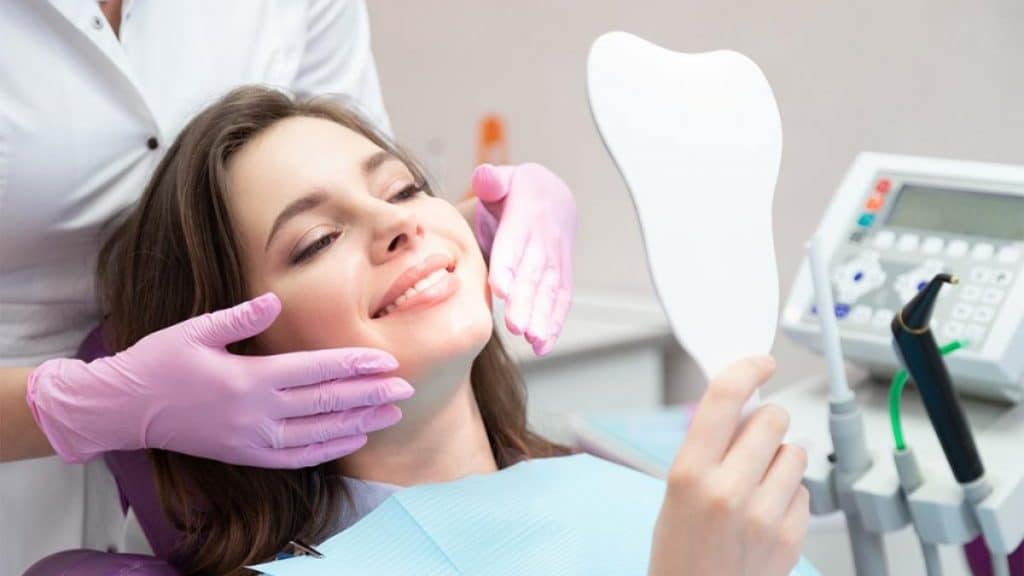Dentistry, as a vital branch of medicine, focuses on studying, diagnosing, preventing, and treating diseases, disorders, and conditions affecting the oral cavity. Despite its significance, dentistry often finds itself obscured by myths and misconceptions. In this blog, we aim to delve into dentistry, uncovering the truths behind prevalent beliefs while emphasizing the pivotal role of dental care.
The Importance of Oral Health:
Beyond the aesthetics of a captivating smile, oral health profoundly influences overall well-being.
Dispelling Myths:
“You only need to see a Fairfield dentist if you have a problem.” – This misconception poses significant risks. Regular dental visits are not solely reactive but proactive, crucial for preventive care and Identifying potential issues at an early stage before they worsen into more serious complications is crucial.
“Brushing harder equals cleaner teeth.” Contrary to popular belief, aggressive brushing can harm teeth by wearing down enamel and irritating gums. Opting for gentle, circular motions with a soft-bristled toothbrush ensures effective cleaning without adverse consequences.
“Sugar is the sole cause of cavities.” – While sugar certainly contributes to tooth decay, it’s important to recognize other factors such as poor oral hygiene, acidic foods, and bacterial presence that play significant roles in cavity formation.
“If my gums bleed when I brush, I should stop brushing.” – Bleeding gums often signify gingivitis, an early stage of gum disease. Rather than avoiding oral hygiene practices, brushing and floss gently and consistently to combat plaque buildup and enhance gum health is imperative.
The Evolution of Dentistry:
From its rudimentary origins in ancient civilizations, dentistry has evolved remarkably. Early practices often relied on crude tools for tooth extraction and herbal remedies for pain relief. However, the modern era has witnessed monumental advancements propelled by technological innovations like digital imaging, laser dentistry, and minimally invasive techniques. Consequently, dental procedures have become more comfortable, efficient, and precise, alleviating patients’ apprehensions and transforming Rouse hill dental visits into less daunting experiences.
This exploration of dentistry’s evolution not only emphasizes its advancements but also showcases the transformative influence of technology on patient care and outcomes. As dentistry progresses, it holds the potential to redefine standards of oral health and well-being, providing patients with a promising and healthier future.
The Evolution of Dentistry:
Dentistry has come a long way from its humble beginnings. Ancient civilizations practised rudimentary forms of dental care, often resorting to crude tools for tooth extraction and remedies like herbs for pain relief. Dental procedures are more comfortable, efficient, and precise today, making dental visits less daunting.
The Role of the Dentist:
Dentists are not just tooth doctors but oral health experts dedicated to helping you achieve and maintain a healthy smile. Beyond routine cleanings and fillings, dentists specialize in various areas, including orthodontics, endodontics, periodontics, and oral surgery. Whether you require braces for teeth alignment, a root canal to salvage a damaged tooth, or dental implants for tooth replacement, your dentist possesses the expertise and proficiency to deliver customized care suited to your individual needs.
Navigating Dental Anxiety:
For many people, visiting the dentist evokes feelings of anxiety and fear. Dental anxiety is a common phenomenon, often stemming from negative past experiences, fear of pain, or embarrassment about the condition of one’s teeth. Techniques like sedation dentistry, where patients are given medication to help them relax during procedures, can significantly alleviate anxiety and make dental visits more manageable.
Embracing Preventive Care:
Prevention is always better than cure, and this holds especially true in dentistry. Adopting good oral hygiene habits like brushing twice daily, flossing daily, and limiting sugary snacks can significantly reduce your risk of dental problems. Furthermore, routine dental examinations enable your dentist to oversee your oral health, identify potential issues early, and offer timely interventions to forestall further harm.
Conclusion:
Dentistry encompasses more than just repairing teeth, it promotes overall health and well-being. You can journey towards a healthier smile and a happier life by dispelling myths, embracing preventive care, and fostering a positive relationship with your dentist. So, don’t let fear or misconceptions hold you back; prioritize your oral health and reap the benefits of a radiant smile for years.
